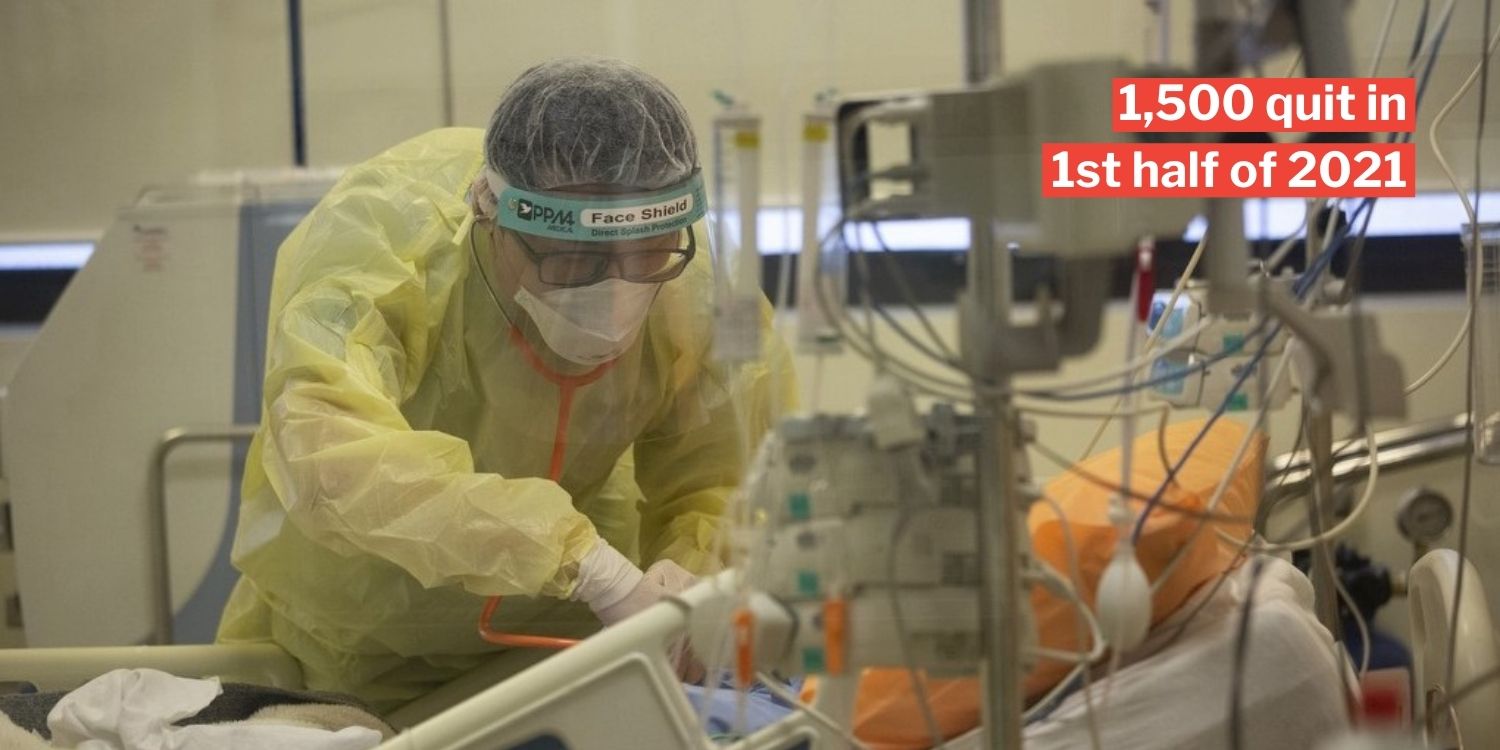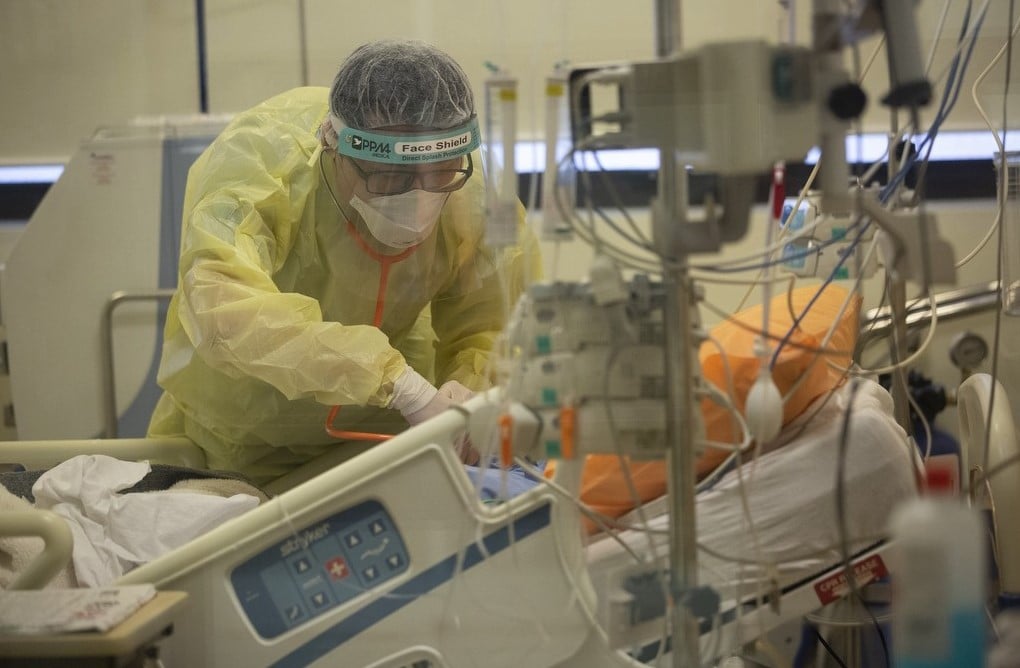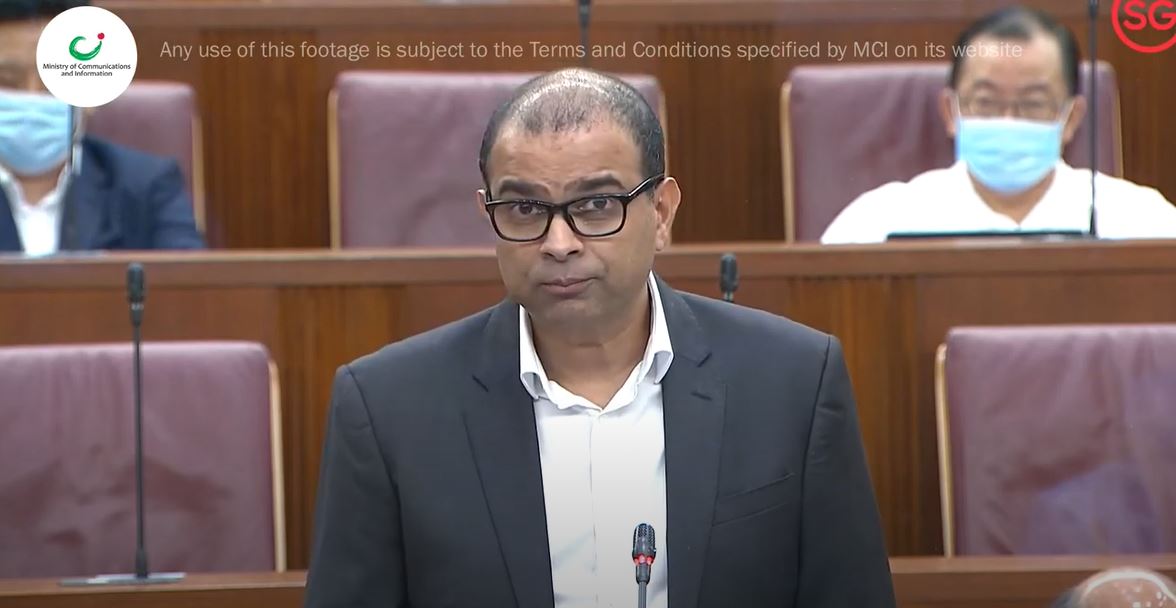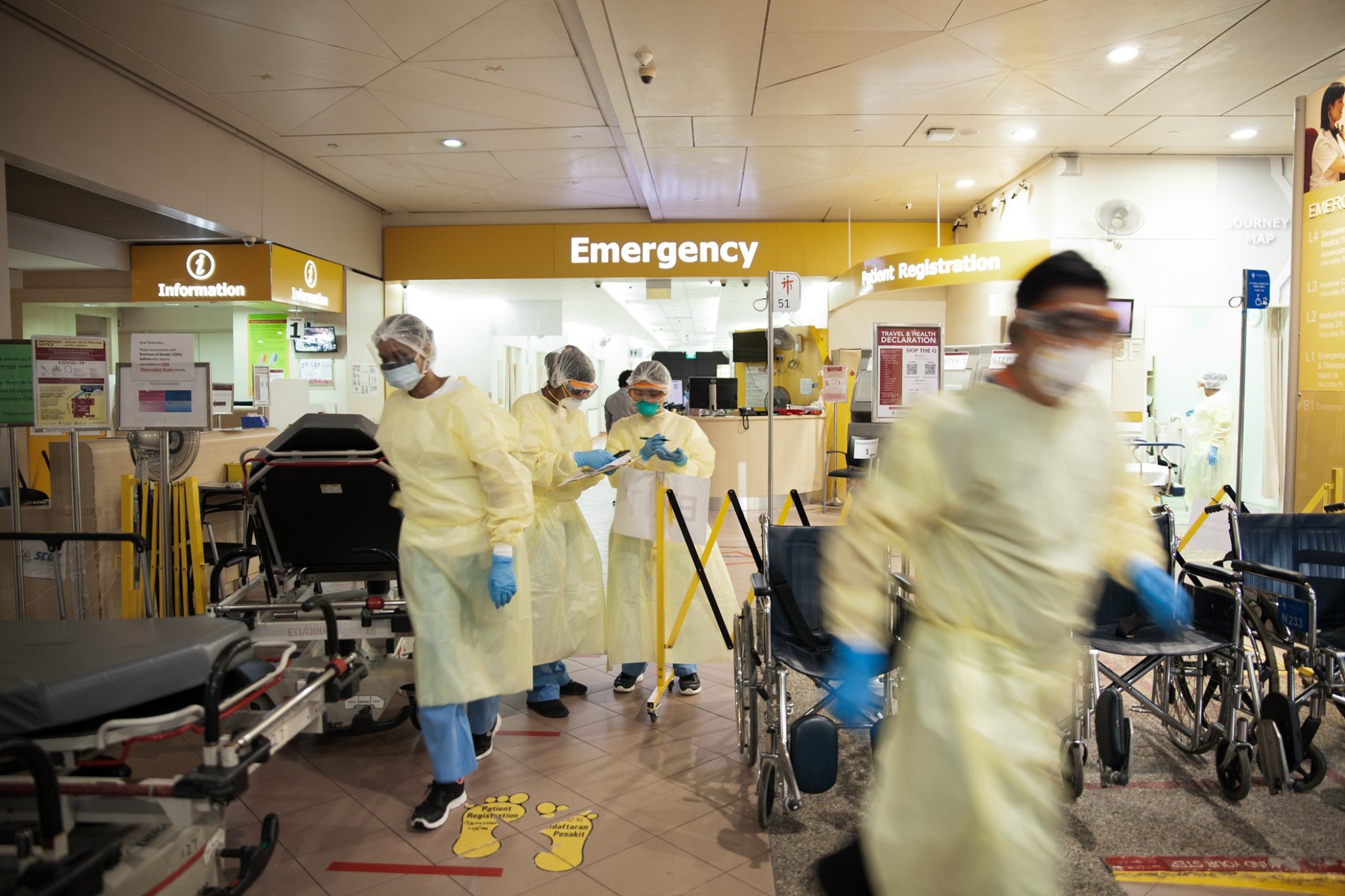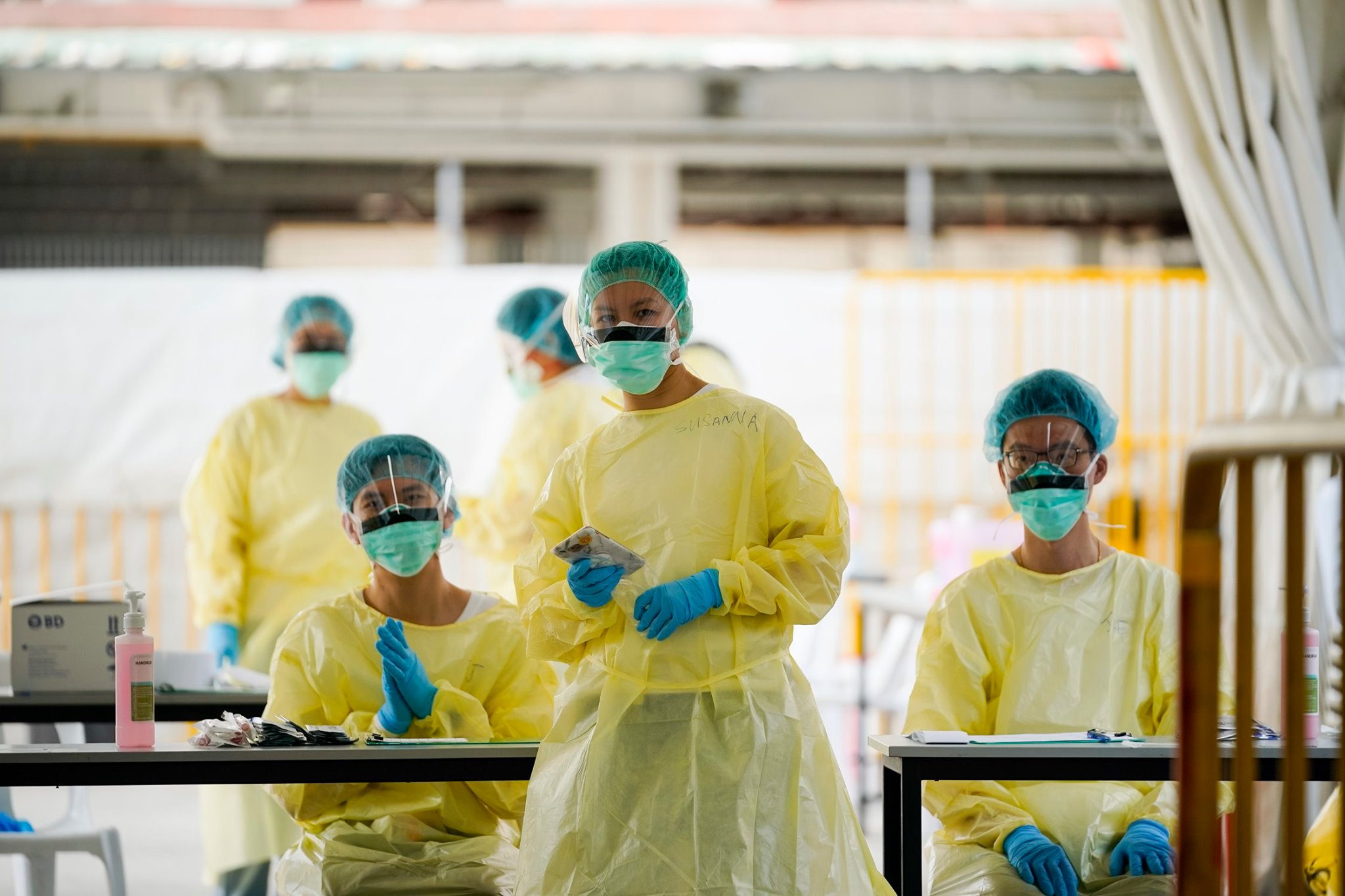Healthcare Workers Going Beyond Call Of Duty: Janil Puthucheary
Singaporeans monitoring Covid-19 updates would’ve noted the depressing fact that we’ve been reporting deaths every day for 1.5 months.
Though the increasing death figures are a consequence of living with Covid-19, the double-digit figures per day are still disturbing.
In fact, we could perhaps have 2,000 deaths per year from the virus, said Senior Minister of State for Health Janil Puthucheary.
And as hospitals continue to be filled with patients, more healthcare workers are also quitting as fatigue sets in.
Singapore had 1 of the lowest death rates globally
The sobering statistics were revealed by Dr Puthucheary during a ministerial statement in Parliament on Monday (1 Nov).
But while our current surge in deaths may seem frightening, he said that Singapore thus far had one of the lowest fatality rates in the world.
Our death rate is now 0.2% – compared with other countries that had 3% or higher during their respective surges.
The 0.2% death rate is also comparable to that of pneumonia, before Covid-19 came along.
This was achieved through tight restrictions last year, good medical care, and cautious reopening after the majority of the population had been vaccinated.
Covid-19 deaths will rise over time
However, our low death rate may mean that there’s nowhere to go but up.
Over time, the number of deaths will rise despite the best possible medical care as more people get infected, said Dr Puthucheary, who is also a medical doctor.
This comes as we transition towards living with Covid-19, and vaccinations and safe management measures can’t protect us completely.
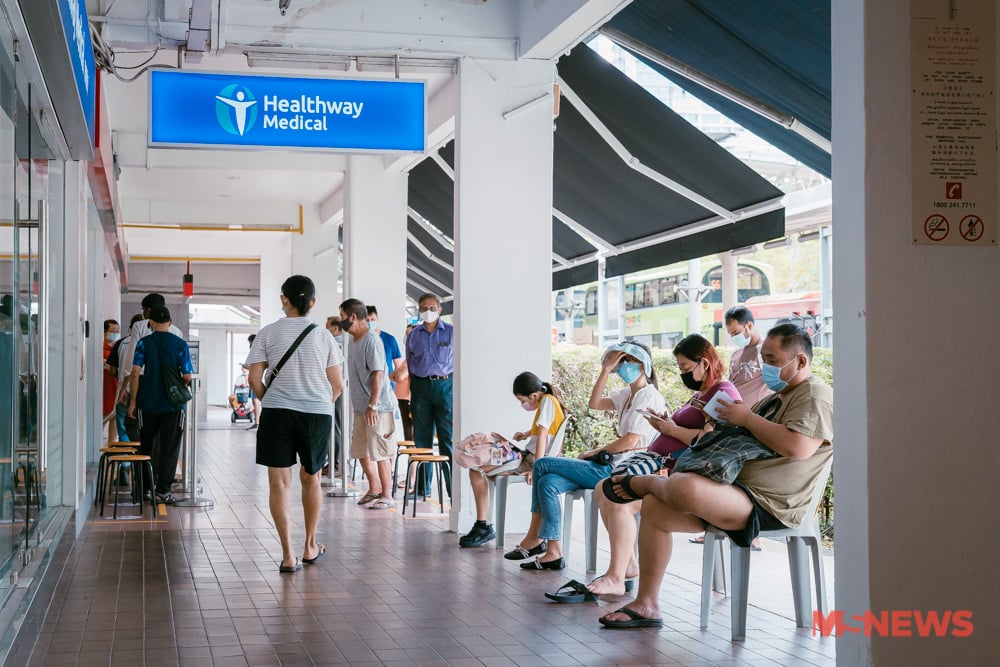
In fact, we could end up having 2,000 deaths per year from Covid-19, he added.
However, most fatalities will be elderly or already unwell.
As a point of comparison, the minister said before the pandemic about 4,000 people passed away yearly from respiratory diseases like influenza and viral pneumonias.
60% of Covid-19 ICU beds occupied
This is why the Government is doing everything they can to expand our Intensive Care Unit (ICU) capacity.
While there are currently 219 ICU beds for Covid-19 patients, 60% of them are being occupied by those who’re critically ill.
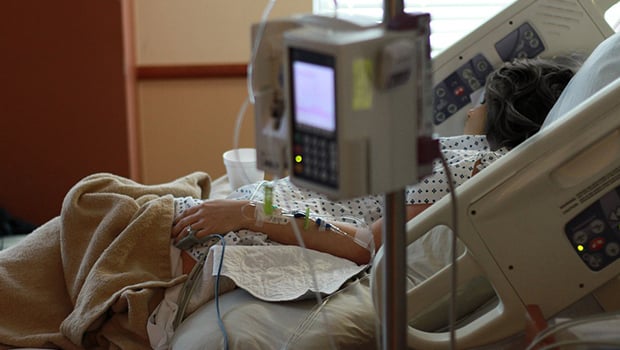 Photo for illustration purposes only
Photo for illustration purposes only
Source
Thus, hospitals are trying to ramp up the number of beds to 280 this week.
The next expansion will be to 350, if necessary.
Hospitals are also bearing the load of non-Covid-19 patients who also need to be in the ICU due to life-threatening medical conditions.
Almost 80% of these 163 adult ICU beds are occupied in public hospitals, Dr Puthucheary said.
Signs of fatigue among healthcare workers
Due to the immense workload and manpower crunch, it’s no surprise that healthcare workers are showing signs of fatigue.
This is after more than 20 months of battling the pandemic, when many haven’t managed to clear their leave. In fact over 90% won’t even be able to clear their accumulated leave for 2021.
Amid the current surge in infections, nurses worked 160-175 hours in Sep.
Stories from the battlefield
To illustrate the point, Dr Puthucheary read out a WhatsApp message from a senior member of the clinical teams that said,
We are getting increasingly stretched, overworked and fatigued. We are armed up… We are uncertain how long we can keep this up. Morale is slipping.
Another healthcare colleague compared the pandemic to a marathon, saying,
It feels like what started as a 2.4k run became a marathon, and just as we are reaching the finishing line, we have to run a second marathon. Our people are exhausted physically, mentally, emotionally – whether they will admit it or not.
The minister said he takes these words “very very seriously”, acknowledging that healthcare workers are going “way beyond the call of duty” and “carrying a burden of care that is sometimes unimaginable”.
More healthcare workers resigning
As a consequence, more healthcare workers have had enough, and called it quits – exacerbating the manpower crunch.
About 1,500 healthcare workers resigned in the 1st 6 months of 2021, Dr Puthucheary said.
Before Covid-19, the figure was 2,000 per year.
Foreign healthcare workers may have had it worse too, as they can’t even travel to see their families back home.
Thus, about double the usual rate of resignations have been seen – almost 500 of them resigned in the 1st half of this year alone.
This is compared with about 500 in 2020 and 600 in 2019.
Their reasons for quitting ranged from personal reasons to migration and moving back to their home countries.
Inspirational stories still can be found
Amid the depressing news, Dr Puthucheary also highlighted inspirational stories of healthcare workers committed to service.
One Orthopaedic Department nurse was redeployed to the Covid-19 ICU after a short training stint. She managed to be competent in ICU care despite the challenging new environment after decades in nursing.
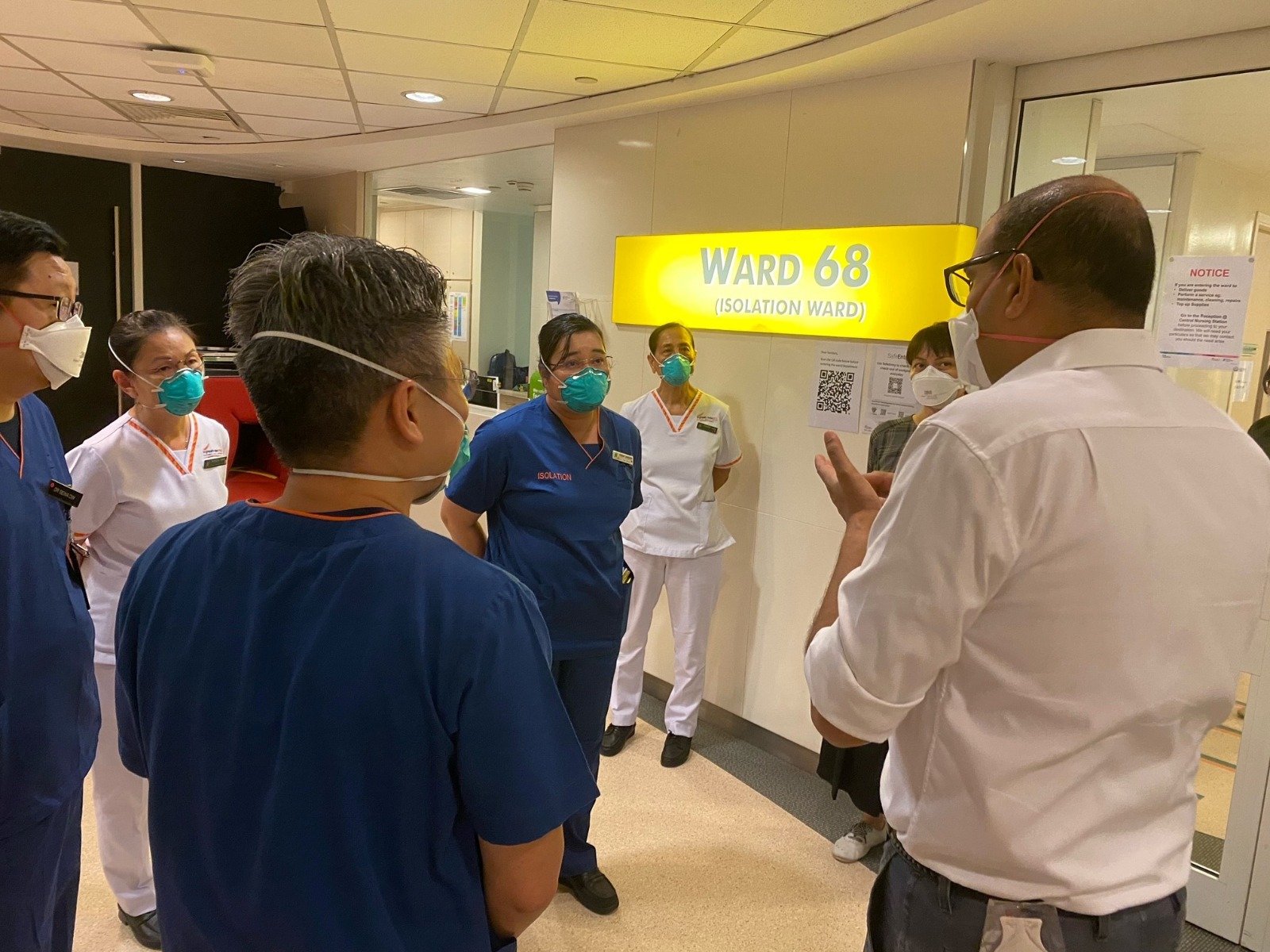 Dr Puthucheary with healthcare workers from the Singapore General Hospital (SGH)
Dr Puthucheary with healthcare workers from the Singapore General Hospital (SGH)
Source
She’s now looking after a woman whose baby was delivered prematurely because she had Covid-19 and was warded in the ICU – her 1st obstetric patient.
Many healthcare workers like her have continued to perform excellently despite being deployed urgently to unfamiliar environments, the minister said.
That’s due to their hard work, professionalism, dedication and resilience.
Looking forward to better days
Singapore’s undoubtedly going though a rough patch for now, with more than 400 Covid-19 deaths and more to come.
So we don’t fault any healthcare worker for throwing in the towel after 20 months and more of sterling service. Hopefully, more manpower can be found to relieve them.
MS News sends our condolences to each and every person who has lost someone due to Covid-19.
At the same time, we continue to salute our noble healthcare workers for their sacrifices, and look forward to the day when things become better.
Have news you must share? Get in touch with us via email at news@mustsharenews.com.
Featured image adapted from National Museum of Singapore on Facebook.
